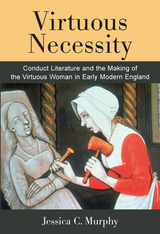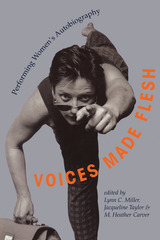5 start with V start with V

During the last centuries of the Roman Empire, the prevailing ideal of feminine virtue was radically transformed: the pure but fertile heroines of Greek and Roman romance were replaced by a Christian heroine who ardently refused the marriage bed. How this new concept and figure of purity is connected with--indeed, how it abetted--social and religious change is the subject of Kate Cooper's lively book.
The Romans saw marital concord as a symbol of social unity--one that was important to maintaining the vigor and political harmony of the empire itself. This is nowhere more clear than in the ancient novel, where the mutual desire of hero and heroine is directed toward marriage and social renewal. But early Christian romance subverted the main outline of the story: now the heroine abandons her marriage partner for an otherworldly union with a Christian holy man. Cooper traces the reception of this new ascetic literature across the Roman world. How did the ruling classes respond to the Christian claim to moral superiority, represented by the new ideal of sexual purity? How did women themselves react to the challenge to their traditional role as matrons and matriarchs? In addressing these questions, Cooper gives us a vivid picture of dramatically changing ideas about sexuality, family, and morality--a cultural revolution with far-reaching implications for religion and politics, women and men.
The Virgin and the Bride offers a new look at central aspects of the Christianization of the Roman world, and an engaging discussion of the rhetoric of gender and the social meaning of idealized womanhood.

The sweep of the volume's coverage is impressive, ranging across historical periods and academic disciplines, as contributors consider the place of the body in gender fantasy and the consequences of gender fantasy for real people and real bodies. The essays investigate figures and topics including Amelia Earhart, soap-opera chat groups, Elizabeth I, mesmerism, lesbianism in the early modern period, cybergames, women in the federalist period, the transgendered body, and performance art. Also examined are the status of embodiment, the origins of gender, gender politics, the pains of subjectivity, the uses of utopian fantasy, technological advances and information technology, the experience of gendered communities, and the role of gender in global politics.
Contributors include Harriette Andreadis, Seyla Benhabib, Charlotte Canning, Bernice Hausman, Janel Mueller, Mary Ann O'Farrell, Kay Schaffer, Sidonie Smith, Carroll Smith-Rosenberg, Helen F. Thompson, Lynne Vallone, and Robyn Warhol. The book will appeal to an interdisciplinary audience of scholars, critics, and students with interests in gender, identity, and cyberculture.
Mary Ann O'Farrell is Associate Professor of English, Texas A & M University. Lynne Vallone is Associate Professor of English, Texas A & M University.


Fourteen bold, dynamic, and daring women take the stage in this collection of women's lives and stories. Individually and collectively, these writers and performers speak the unspoken and perform the heretofore unperformed.
The first section includes scripts and essays about performances of the lives of Gertrude Stein, Georgia O'Keeffe, Mary Church Terrell, Charlotte Cushman, Anaïs Nin, Calamity Jane, and Mary Martin. The essays consider intriguing interpretive issues that arise when a woman performer represents another woman's life. In the second section, seven performers—Tami Spry, Jacqueline Taylor, Linda Park-Fuller, Joni Jones, Terri Galloway, Linda M. Montano, and Laila Farah—tell their own stories. Ranging from narrrative lectures (sometimes aided by slides and props) to theatrical performances, their works wrest comic and dramatic meaning from a world too often chaotic and painful. Their performances engage issues of sexual orientation, ethnicity, race, loss of parent, disability, life and death, and war and peace. The volume as a whole highlights issues of representation, identity, and staging in autobiographical performance. It examines the links among theory and criticism of women's autobiography, feminist performance theory, and performance practice.

READERS
Browse our collection.
PUBLISHERS
See BiblioVault's publisher services.
STUDENT SERVICES
Files for college accessibility offices.
UChicago Accessibility Resources
home | accessibility | search | about | contact us
BiblioVault ® 2001 - 2024
The University of Chicago Press









